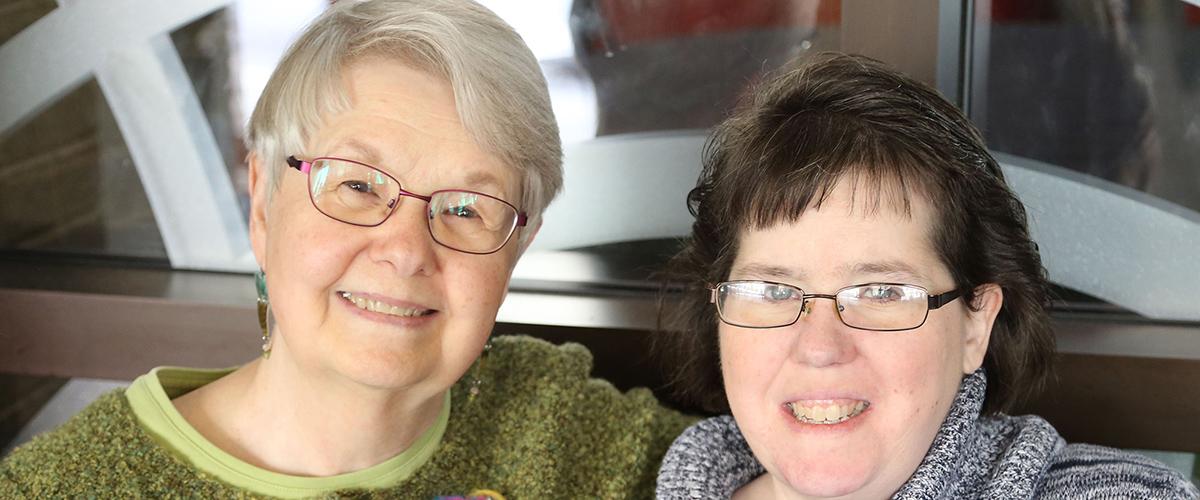Participants Needed for Important DM Research Study
The Myotonic Dystrophy Clinical Research Network (DMCRN) sites are currently conducting a critically-important research study designed to help drug developers successfully design clinical trials and understand how to assess the efficacy of potential therapies. The research study, entitled, “Establishing Biomarkers and Clinical Endpoints in Myotonic Dystrophy Type-1 (END-DM1)", is being conducted at 20 sites around the world. Researchers are trying to learn more about what causes the muscle weakness and stiffness (myotonia) in myotonic dystrophy. This study will enroll 700 people, ages 18-70, with myotonic dystrophy type 1 who are willing to travel, up to 4 times, to one of the centers below and complete the study requirements. Subjects may be asked if they would like to participate in the muscle biopsy sub-based on the study team’s assessment.
The information collected in this study will help scientists design new treatments for myotonic dystrophy, find the best way to measure whether myotonic dystrophy is getting better or worse, and determine how it changes over time. There is no cost to you to participate.
Study Details
Enrolled subjects will be asked to undergo the following procedures at each visit:
- Physical examination
- Electrocardiogram (EKG)
- Muscle strength and myotonia testing
- Some patients will need to have a needle muscle biopsy to obtain a small amount of muscle tissue (smaller than a pea)
- Provide blood samples
- Complete a set of questionnaires
- Complete cognitive testing
If you are selected for the muscle biopsy sub-study, the first biopsy will be obtained from the lower leg, next to the shin (tibialis anterior muscle). The second biopsy will be obtained 3 months later, from the opposite leg, next to the shin (tibialis anterior).
Additional follow-up visits will be at month 3 (if you provided a muscle biopsy), month 12 and month 24.
Ready to Participate?
If you are interested in this project, please contact one of the recruiting study coordinators listed below or Jeanne Dekdebrun at Jeanne_Dekdebrun@urmc.rochester.edu or Jessica St. Romain at Mary.StRomain@vcuhealth.org.
- University of Kansas, Kansas City, Kansas
Rebecca Clay, rclay@kumc.edu - University of Rochester, Rochester, New York
Jim Hilbert, James_Hilbert@URMC.Rochester.edu - Virginia Commonweatlh University, Richmond, Virginia
Carino Jennings, Carino.Garza@vcuhealth.org - Ohio State University, Columbus, Ohio
Kaneshia Hives, Kaneshia.Hives@osumc.edu, 614-685-5661 - University of Florida, Gainesville, Florida
Whitney Miller, Whitney.Miller@neurology.ufl.edu - Houston Methodist, Houston, Texas
KaDeesia Brown, Kbrown5@houstonmethodist.org - University of Iowa, Iowa City, Iowa
Maegan Tyrrell, maegan-tyrrell@uiowa.edu -
Centro Clinico NEMO, Milan, Italy
Erica di Natale, erica.dinatale@centrocliniconemo.it - Radboud University, Nijmegen, Netherlands
Monique Plieger, Monique.Plieger@radboudumc.nl - München, Germany
Corinna Wirner-Piotrowski, Corinna.Wirner@med.uni-muenchen.de - University College London, London, United Kingdom
Nikoletta Nikolenko, n.nikolenko@nhs.net - St. George’s University, London, England, Claire Gilmartin, Claire.Gilmartin@stgeorges.nhs.uk
- University of California Los Angeles, Los Angeles, California
Dennis Fernando, DeFernando@mednet.ucla.edu - Stanford University, Stanford, California
Sarah Ismail, sismail@stanford.edu - University of California San Diego, San Diego, California
Mariah Stechschulte, mastechschulte@health.ucsd.edu - University Colorado Denver, Aurora, Colorado
Alyssa Avilez, alyssa.avilez@cuanschutz.edu - UT Health San Antonio, San Antonio, Texas
Marlon Tamayo-Muradas, tamayomurada@uthscsa.edu - University of Auckland, Auckland, New Zealand
Sarah Nagar, sarah.nagar@auckland.ac.nz - Université de Sherbrooke, Sherbrooke, Quebec
Camélia Dubois, CameliaDubois@cegepjonquiere.ca - Aomori – Osaka, Japan
Eri Ikeda, eri.ikeda@verlieben.jp



